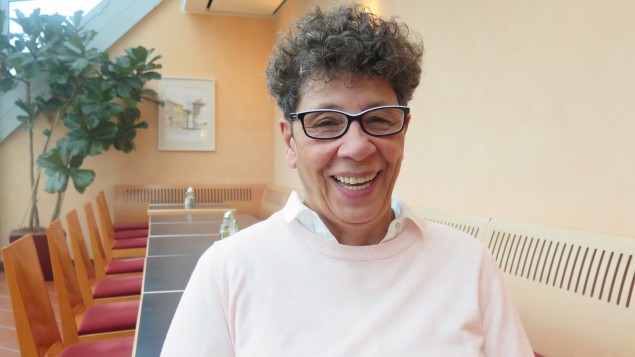In the immediate aftermath of World War Two, thousands of children were born to white German women and black American soldiers who were stationed in Allied-occupied Germany.
The mixed-race infants were viewed with contempt by many Germans and subjected to constant abuse.
Black activist and author Ika Hügel-Marshall was one of the so-called “occupation babies”.
She recalls the painful struggle to discover her own identity as a result of the racism she experienced growing up black in post-war Germany.
“When I was a child people would scratch my face with a scrubbing brush to show other children it wasn’t chocolate on my face.
Obviously as a child I couldn’t figure out why this was happening to me. I just wanted to be white, to have the feeling of belonging and feeling like the others.”
Following defeat in 1945 Germany found itself once again occupied by Allied troops. The Americans brought back with them black GIs who remained stationed in Germany for some time after the war. Inevitably bonds were formed and in some cases children followed, born into an all-white environment and having no contact at all with black people.
“My father came to Germany because he was an American soldier. He was sent back home early because he became ill. All children born to African-American fathers were identified as ‘occupation babies’.
When I was six and a half years old my mother took me to the children’s home. I’ve never blamed her because I know that she was under a lot of pressure.
I felt as if I was worth so much less than the other children there. I was hit, locked up in rooms, and when I was ten, they tried to drive the devil out of me. I had to kneel down in front of a chair. All the windows were closed and I had to repeat, ‘Jesus is the victor’. Then the shutters were opened so that the devil hiding inside me could fly out of the window. I was worth so little that if they could get the devil out of me then I’d be worth a little bit more.
That’s how I felt.”
She never thought of her father when I was growing up. But when Ika was 18, she felt like she’d like to meet him.
“Everything that I’d been through because of the colour of my skin made it even more important to find him. I tried to get in contact using an old address my mother had but the letter came back.
For a long time I felt angry every time I encountered black people greeting me on the streets. I didn’t want anything to do with them because for me being black it meant being sidelined and inferior.”
But a meeting with American author Audre Lorde ignited something in Ika Hügel-Marshall that set her on her own journey of finding her identity and herself.
“I met Audre Lorde here in Germany in the 1980s. She was an African-American writer and she impressed me as an older black woman. She was very important to me. She told us that as Afro-Germans we should no longer be silenced in this society.
It was something really special because it made me realise that others had experienced the same things as me.”
In 1993, Ika finally traced her father. He was living in Chicago.
“You can’t really describe the feelings I had. I was so happy. Getting to know him really healed me. Suddenly I could feel proud of myself and walk tall. I had arrived where I’d always wanted to be and that’s how I still feel today.
Ika’s father died after the year of their reunion.














